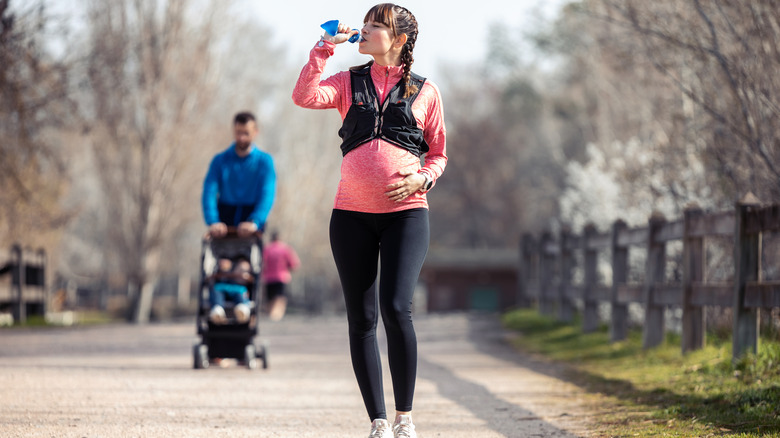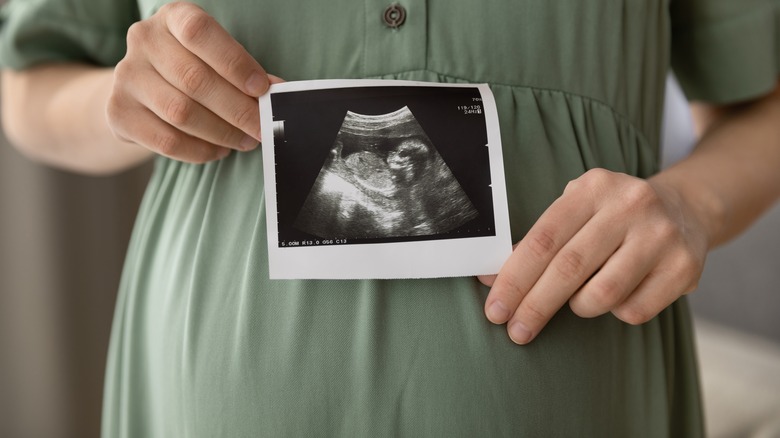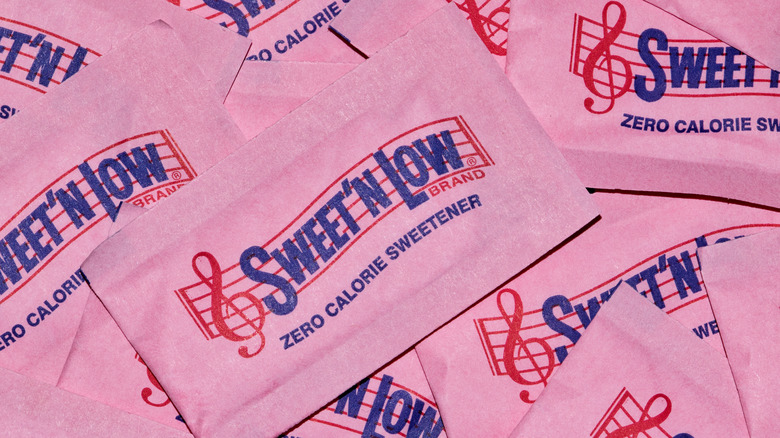Can You Drink Energy Drinks While Pregnant?
When you're pregnant, you may feel fatigued and want a boost of energy. An energy drink may seem like a tempting way to achieve a quick pick-me-up, but when you're pregnant it may not be the safest choice. According to the National Center for Complementary and Integrative Health, energy drinks are the second most popular dietary supplements behind multivitamins. Energy drinks are sometimes sold as sports performance enhancement beverages or health supplements, but they often contain large amounts of caffeine and other ingredients that can potentially be harmful. In particular, many of the ingredients in energy drinks can be harmful to women who are currently pregnant.
Energy drinks and their ingredients have even been linked to an increase in the risk of stillbirth (via Yahoo). Researchers from Tommy's Maternal and Fetal Health Research Centre at the University of Manchester reviewed data pertaining to caffeine consumption and pregnancy health of over 1,000 pregnant women and found concerning outcomes regarding energy drink consumption. If an expectant mother drank energy drinks during pregnancy, she was 1.85 times more likely to deliver a stillborn baby than an expectant mother who didn't consume energy drinks. Here's what you need to know about the harmful ingredients that can be found in energy drinks and why you should avoid them if you're pregnant.
Caffeine can be harmful to your baby
Many people rely on a morning cup of coffee to start their day or a midday soda to fight afternoon fatigue, but for women who are pregnant, the intake of caffeine can be risky (per American Pregnancy Association). Caffeine poses harm to women who are pregnant in that it can raise blood pressure and increase heart rate. Once consumed, caffeine can actually cross through the placenta while your baby doesn't yet have the enzymes to metabolize the stimulating substance. Particularly in the later months of pregnancy, being exposed to caffeine may disrupt your baby's sleep and alter movements.
According to the National Institutes of Health, daily caffeine consumption at even a moderate level while pregnant can potentially lead to smaller birth size of the baby. Moderate caffeine consumption is defined as up to 200 milligrams per day, or about the size of two cups of coffee. Energy drinks can contain up to 242 milligrams of caffeine in a single beverage (per WebMD). Even though the burst of energy may seem enticing, it's best to play it on the safe side and avoid caffeine.
Artificial sweeteners may be lurking
For women who are pregnant, caffeine isn't the only harmful ingredient in energy drinks. Energy drinks are often filled with sugar and sometimes include artificial sweeteners, particularly in drinks labeled as sugar-free, as was determined in a 2021 study published in Nutrients. Researchers found that chronic consumption of sugar-free energy drinks is just as linked to metabolic syndrome as chronic consumption of energy drinks containing sugar. Given that sugar-free energy drinks can contain artificial sweeteners, it's important to understand the safety of various artificial sweetening options on both your own health and the health of your growing baby.
Saccharin is one artificial sweetener in particular that has not been approved by the FDA for consumption while pregnant (per American Pregnancy Association). Saccharin, which is often marketed under the name Sweet 'N Low, can cross the placenta and reach your baby. Saccharin can even remain within fetal tissue, so avoiding it while pregnant is paramount. Always check the ingredients before drinking a beverage to see if it contains ingredients that may be harmful to your baby.



